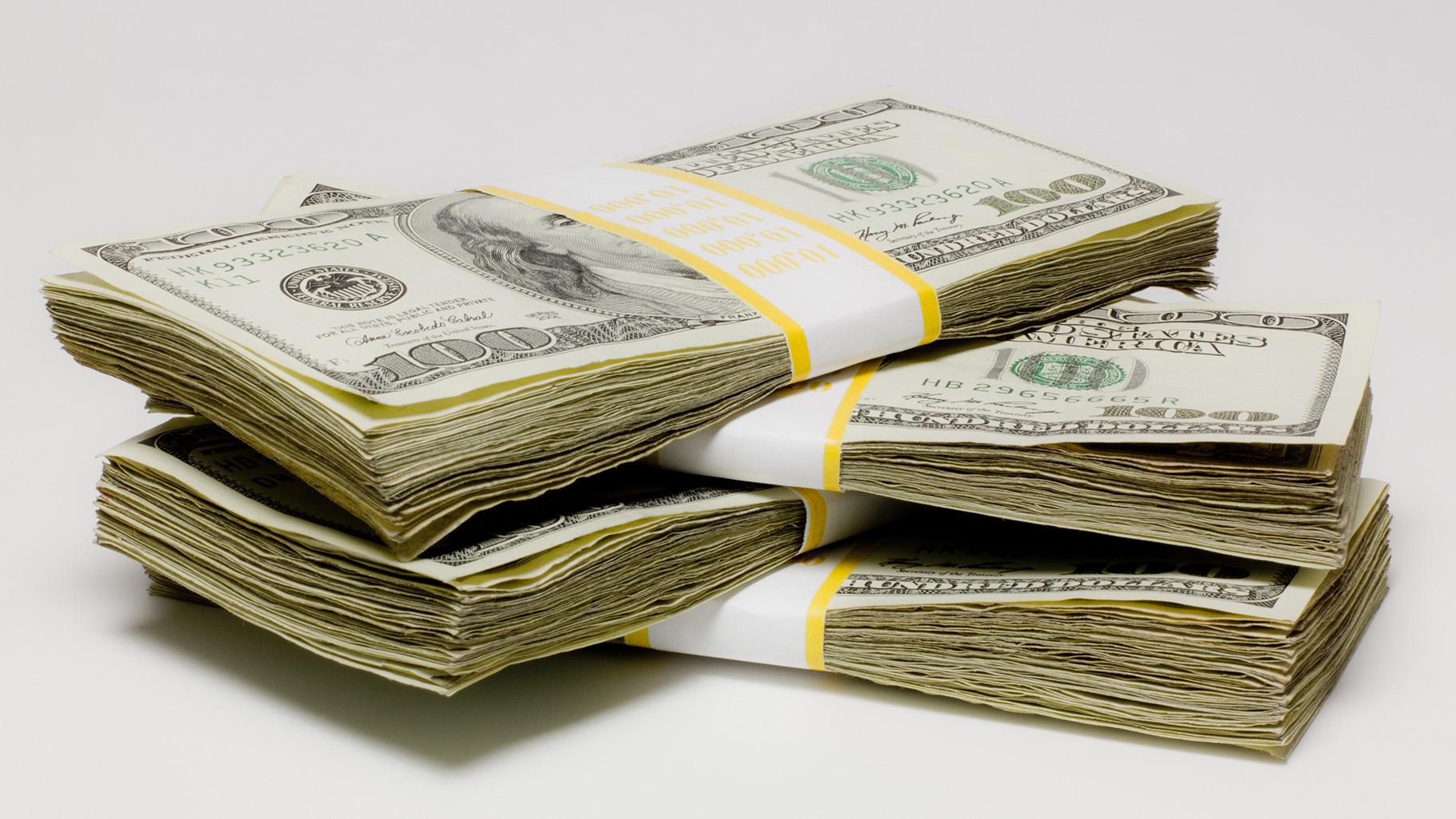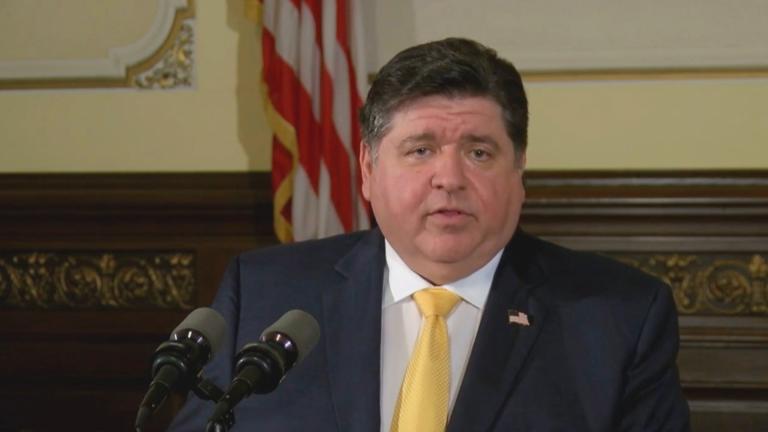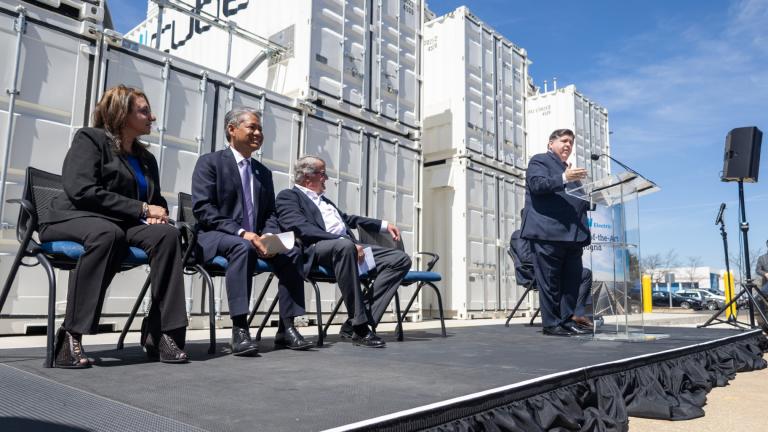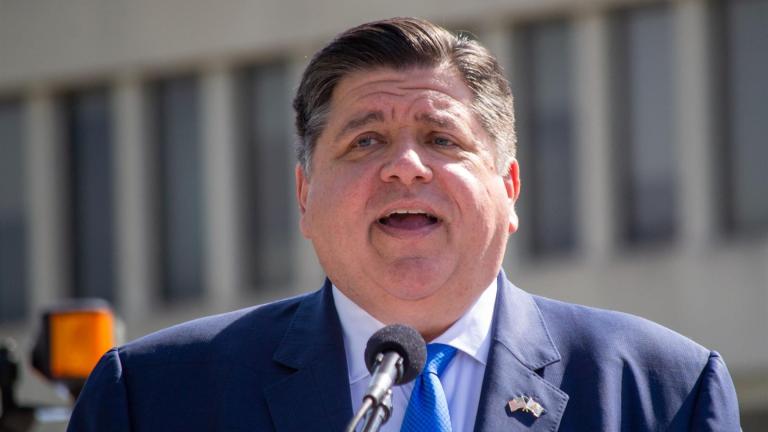 (Ken Teegardin / Flickr)
(Ken Teegardin / Flickr)
Illinois voters will get a chance to decide whether they want to fundamentally change the rules dictating how their income is taxed, thanks to legislators’ Memorial Day vote to put a proposed constitutional amendment on the 2020 ballot.
Democrats view it as putting Illinois on a path to making the wealthy pay their fair share while relieving a burden on those who can least afford it, in order to infuse the state budget with fresh revenues. Republicans define it as stoking a type of class warfare and penalizing small businesses and residents for their success, ultimately chasing them away and hurting Illinois’ bottom line.
Should voters ratify the amendment, Illinois could begin to tax at varying, income-tested tax rates, rather than the flat-rate tax currently charged on income – whether a six- or seven-figure salary or minimum wage.
Even initially recalcitrant Democrats backed the constitutional amendment language (73 of the party’s 74 Illinois House members voted for it), scoring a major victory for novice Gov. J.B. Pritzker, who made a graduated tax – or as he calls it, a “fair tax” – a hallmark of his campaign for governor, and who is now spending some of his fortune to back a dark money group that’s promoting the switch.
“For years, Illinoisans have been fighting to make our income tax system more fair to middle class families and those striving to get there, and this monumental vote in the General Assembly means that voters will have the right to decide our system for themselves in November 2020,” Pritzker said in a statement.
The governor says under the planned rate structure he wants to implement come 2021, 97% of Illinois residents will pay the same, or less, in income taxes.
Under a measure approved by the Senate but which has not yet been approved by the House, residents with incomes of $250,000 and higher would pay more; single filers earning more than $750,000 and joint filers with incomes of $1 million or more would pay the top rate of 7.99%.
Even if the General Assembly approves a bill setting up those tiers, Republicans argue the middle class should be wary, given that removing the flat tax “protection” of being forced to raise taxes on everyone – or no one – will make it easier for politicians to hike taxes in the future.
“Every time we turn around, an oppressive government sits like a vulture on a high line, ready to take more money out of your pocket. The American dream has become the American nightmare,” Rep. Chris Miller, R-Oakland, said.
Miller, a farmer, said promoting a graduated tax as “fair” is akin to putting “lipstick on a pig.”
“There couldn’t be anything more unfair,” Miller said, given that it will take “$3.4 billion from responsible citizens’ hands and puts it in the hands of irresponsible bureaucrats.”
Pritkzer’s office estimates his plan would bring an extra $3.4 billion to state coffers – money Democrats say is needed to fix the state’s shoddy finances once and for all.
Sponsoring Rep. Rob Martwick, D-Chicago, calls it the “right thing to do” – philosophically and mathematically – after a long pattern of ignoring harsh fiscal realities, and particularly after Illinois’ credit rating took a hit and its backlog of unpaid bills skyrocketed as a partisan rift left the state without a budget during Gov. Bruce Rauner’s one term in office.
“Let’s make no mistake. Today's vote is the end result of the Illinois Democrats’ historical reckless irresponsible budgeting and spending,” House GOP Leader Jim Durkin said. “The Illinois House of Representatives has been run by the Democrat party of Illinois and Speaker Madigan for 34 years.”
Republicans also questioned why, if Democrats are going to open the constitution to amendments, they are not instead focusing on adding term limits, a change in how legislative districts are drawn to do away with partisan gerrymandering or release from Illinois’ strict clause protecting government-employee pensions.
Various GOP legislators say that Democrats’ focus is on taxes is a sign of their “insatiable” spending habits.
“I am willing, and in fact proud to stand here and say that I believe in government spending. I believe in government spending on food for the hungry, on shelter for the homeless, and on health care for the sick, on education for our children,” said state Rep. Will Guzzardi, D-Chicago. “I don’t think that’s a spending problem. I think that is our job. That is the job of government.”
House Speaker Michael Madigan did not speak during the hourslong debate, but issued a statement afterward saying, “middle-class families bear too much of the burden under the current tax system, and a Fair Tax will enable us to make the wealthy pay their fair share to balance the budget and invest in critical resources like education and health care – all while providing relief for 97% of taxpayers.”
Madigan’s statement went on to say that “there is more work to be done.”
Democrats got right to tackling some of that work: During a press conference held immediately after the vote to relish their victory, Pritzker and a group of Democratic legislators announced the formation of a bipartisan task force on making property tax relief a part of the broader tax package.
In many pockets of the state, skyrocketing property tax bills, which are used to fund schools and local units of government, are viewed as a bigger bane than the state income tax.
The burgeoning, politically volatile issue of property taxes is one that crosses the aisle, but it’s unclear whether Democrats will get any buy-in from the GOP.
All 44 Republicans voted against the constitutional amendment (Senate Joint Constitutional Amendment 1).
Despite Pritkzer’s vows of bipartisan cooperation, Republicans say the governor and the Democratic supermajorities in the House and Senate have run roughshod over them, first with their unilateral vote to increase the minimum wage and now with the graduated income tax.
Downstate lawmakers say both Pritkzer-backed initiatives will cause particularly pain in their region; they say they’ve seen no follow-through on Pritzker’s February promise of a forthcoming downstate revitalization plan.
The governor on Monday, in response to a reporter's question, said that one is coming. But time is running short, with the legislature set to adjourn on Friday until fall.
More tax votes could be on the docket, including a bevy of taxes on satellite TV and streaming video, ride shares, beer, wine and gasoline, all to pay for infrastructure upgrades.
Pritzker also proposes a statewide tax on plastic bags, e-cigarettes and a higher tax on cigarettes in order to prop up this year’s budget.
His financial package is also dependent on Illinois legalizing (and taxing) sports betting and recreational marijuana.
Discussions on a capital program, fiscal year 2020 budget, gambling – including potentially new casinos – and legal marijuana are all ongoing.
Among other prospective headline bills the General Assembly may still consider are measures that would loosen restrictions on abortion in Illinois, moving Chicago from an appointed to an elected school board, and giving the Chicago Teachers Union more negotiating room as contract talks begins with new Chicago Mayor Lori Lightfoot.
Follow Amanda Vinicky on Twitter: @AmandaVinicky
Related stories:
If Pot is Legalized in Illinois, What Happens to Medical Marijuana?
Pritzker Agenda Coming Down to the Wire
Pritzker Makes Push for Legal Sports Betting








